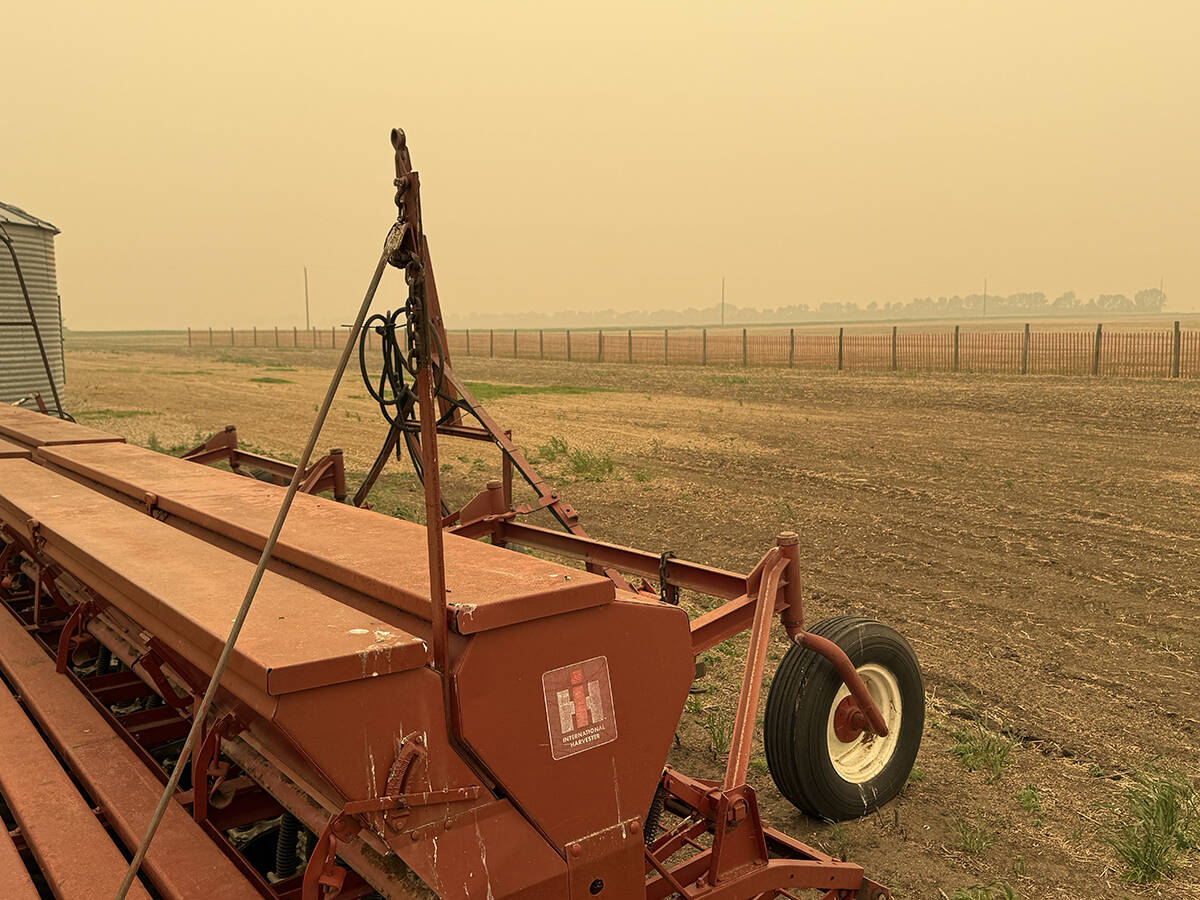The Canadian biofuel industry feels it has an ally in the newly minted president of the United States.
“When president-elect (Barack) Obama took the oath of office, a new North American consensus in favour of cleaner and greener renewable fuels was confirmed,” said Gordon Quaiattini, president of the Canadian Renewable Fuels Association.
“The Obama administration is set to super-charge the North American renewable fuels sector with an unprecedented investment in cleaner and greener energy sources, including ethanol and biodiesel.”
In his first weekly address since being sworn in as the 44th president of the United States, Obama outlined his American Recovery and Reinvestment Plan, which included a commitment to accelerate the creation of a clean energy economy.
Read Also

Wildfires have unexpected upside this year
One farmer feels smoke from nearby wildfires shrouded the July skies and protected his crop from the sun’s burning rays, resulting in more seeds per pod and more pods per plant.
“We will double our capacity to generate alternative sources of energy like wind, solar and biofuels over the next three years,” said the president.
No further details were provided but Quaiattini took that statement to mean the U.S. will be boosting and bumping forward the production targets set out in its renewable fuel standard.
The existing mandate calls for 136 billion litres of production by 2022. Throughout the election campaign Obama talked about increasing the target to 227 billion litres.
“If you’re going to grow the market to that size, it’s pretty clear the U.S. isn’t going to be able to do it on its own. They’re going to be looking to Brazil, they’re going to be looking at Canada and other markets to help supply that,” said Quaiattini.
The president also announced the New Energy for America plan that will invest $150 billion over the next 10 years in clean energy technology.
“We will harness the sun and the winds and the soil to fuel our cars and run our factories,” said Obama in his inauguration speech.
That plan calls for all new vehicles to be flex-fuel vehicles by 2013, which means they can be filled with gas or a blend that includes up to 85 percent ethanol.
“These policies represent an unprecedented catalyst that will see demand for renewable fuels expand enormously in the next decade,” said Canadian Renewable Fuels Association chair Jeff Passmore.
The group is also pleased with Obama’s secretary of agriculture appointment. Tom Vilsack has been a strong advocate for renewable fuel and, like his boss, has supported steps to increase the content of biofuel at the pump.
Quaiattini said the “additional enthusiasm” for biofuel brought by Obama and his team is good news for Canadian ethanol and biodiesel producers because it should improve the overall economics of North America’s biofuel industry and attract additional capital investment.
“Combined with the existing congressional plans and efforts of federal and provincial governments here in Canada, our sector is to experience explosive growth,” he said.
The task at hand for Canada’s biofuel sector remains helping to draft and implement national and provincial regulations.
Once that is accomplished the industry will start pressuring the federal government to consider following the U.S. government’s lead by establishing a specific mandate for cellulose ethanol.
Quaiattini warned Canadians against becoming complacent in their support of biofuel now that oil prices have tumbled below $50 per barrel.
“As soon as (the economic climate) begins to improve, clearly one of the first things going back up again will be the price of oil,” he said.















